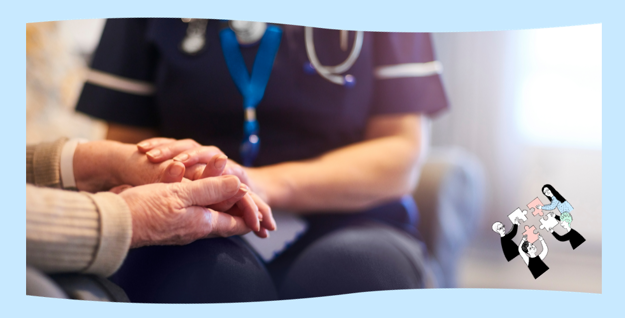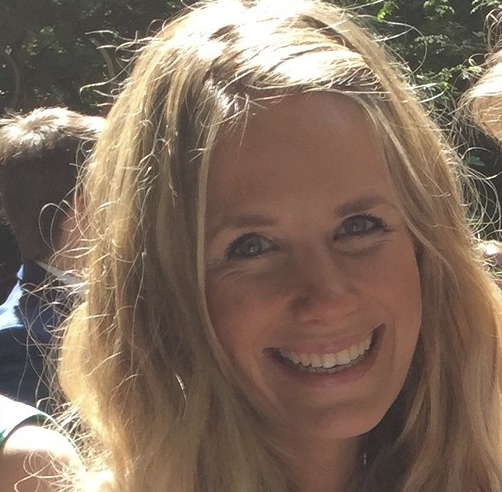It’s hard not to be blown away by the work happening across the charity sector to transform services to meet users’ needs in more scalable ways. We've seen brand new digitally enabled services designed to support communities that charities struggled to reach before. Some are completely changing how they're organised to meet ever-growing demand. We've also seen huge investment in capabilities to help charities drive forward into the digital age. Across the sector, there’s been brave shifts, all in a time of unprecedented demand and, in many cases, reduced resources.
For many health charities, reaching people close to the point of diagnosis is top of their priority list. Not only does evidence show that the time around diagnosis is one of the most worrying, anxious and sometimes isolating experiences for patients and their loved ones, it is also a critical time to access relevant and tailored information and support. The specialist advice and interventions offered by charities can significantly improve long term mental and physical health outcomes. Often, healthcare professionals are unable to provide this support themselves due to being overstretched and having neither the capacity or resources to meet these needs. This means that - at best - patients usually end up receiving a generic leaflet about their condition - which isn’t good enough.
There is huge potential here, so we brought together a group of leading figures in the healthcare and charity space to share their thoughts and ideas on how we can solve this problem.
Sharing and learning
The efforts already underway in this space were fantastic to hear about. This included Breast Cancer Now’s new ‘Here for You’ referral service, in which a single point of referral from a healthcare professional triggers a call from a trained volunteer who introduces services most relevant to the patient’s needs. Other examples include the Stroke Association, which is working towards developing a web-based referral portal that allows healthcare professionals to refer directly into their services, and Diabetes UK focusing on referral routes from both primary and secondary care. And yet, despite all these amazing efforts, to date, we are nowhere near achieving this in a standardised, scaled way. Referrals are still inconsistent, patchy and over-reliant on one-to-one relationships with healthcare professionals.
"System-to-system pathways are the dream. Portals are a sticking plaster"
Creating efficiencies and positive outcomes
We talked about how powerful it could be to shift the way we think of ourselves as separate ‘charity’ and ‘healthcare’ sectors, and instead view ourselves as one health ecosystem. There is a clear role that charities could play in advocating for people and supporting them to stay and live well, ensuring they don’t have to access healthcare as much as they do currently.
"This is about creating efficiency in the system as well as positive health outcomes"
We discussed how the complexity of cases being handled across diseases - both in charity services and in the NHS - has increased since the pandemic. This puts the need for a more integrated healthcare journey (between NHS and specialist charities) for patients into even sharper focus.
Questions were asked about how charities can get better at evidencing the positive experience and impact they provide for patients. If charities did this well it would underline their role as an equal-value service provider. For example, there is clear evidence to demonstrate the value of things like peer support and having the information to manage chronic conditions. The evidence is there, but the services aren’t being used/discovered.
"The evidence is there to say what we bring, why is it not being used?"
There are also power dynamics to consider here. The ways in which services are commissioned in the NHS doesn’t enable work like this: emphasis is in the acute part of the system with a focus on backlogs and waiting lists. What can we do to influence this and demonstrate the critical role charities can play in supporting people to live well, outside of acute settings?
The group also focused on how charities can challenge themselves to be doing more. Third sector organisations must not let themselves off the hook when saying “we want to be there for the most vulnerable”. We know patients being told that relevant charities exist isn’t enough - neither is just being given a leaflet. We need to design services that are accessible and reduce inequity.
Building for the future
The group demonstrated a real hunger to get this right and to mobilise each other, and the NHS more broadly, to do better for people at one of the most vulnerable times in their lives. More consistent and early direct referrals between diagnosing clinicians and specialist charities will benefit people living with long term conditions. There was a real appetite in the room to work together to change these systems for the better and as a group, we’ll be coming back together in November to focus on a couple of the opportunities we identified.
If you’re interested to find out more or get involved please get in touch with Julie Wilson-Dodd or Polly Cook.
We would like to thank all the charities and healthcare organisations that took part in this roundtable, including: Breast Cancer Now, Blood Cancer UK, Diabetes UK, Parkinson's UK, the Stroke Association, NHS MND Association, Pancreatic Cancer UK, and the MS Society.

Supporting donors as part of the pandemic response
Working with donors and staff to improve NHS Blood and Transplant’s new convalescent plasma service, supporting its clinical testing as a potential Covid-19 treatment.
Read moreOur recent insights
Transformation is for everyone. We love sharing our thoughts, approaches, learning and research all gained from the work we do.

Improving the convalescent plasma donor experience
As scientists worked hard to develop a vaccine, NHS Blood and Transplant (NHSBT) began looking at the use of blood plasma taken from those who’ve had Covid-19.
Read more
NHS Blood and Transplant and TPXimpact: A service and user centred design strategic partnership
We’re proud to announce that NHS Blood and Transplant has appointed TPXimpact as their Service and User Centred Design Strategic Partner to help embed a human-centred, user centric design process and culture across the organisation.
Read more

